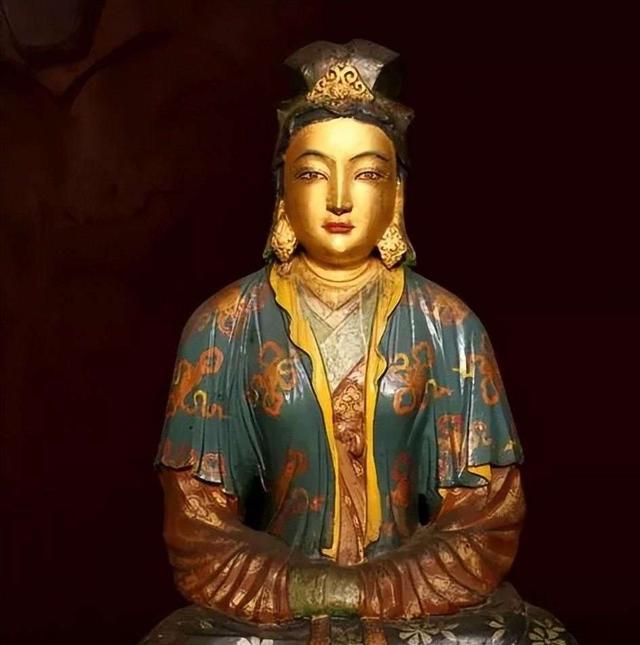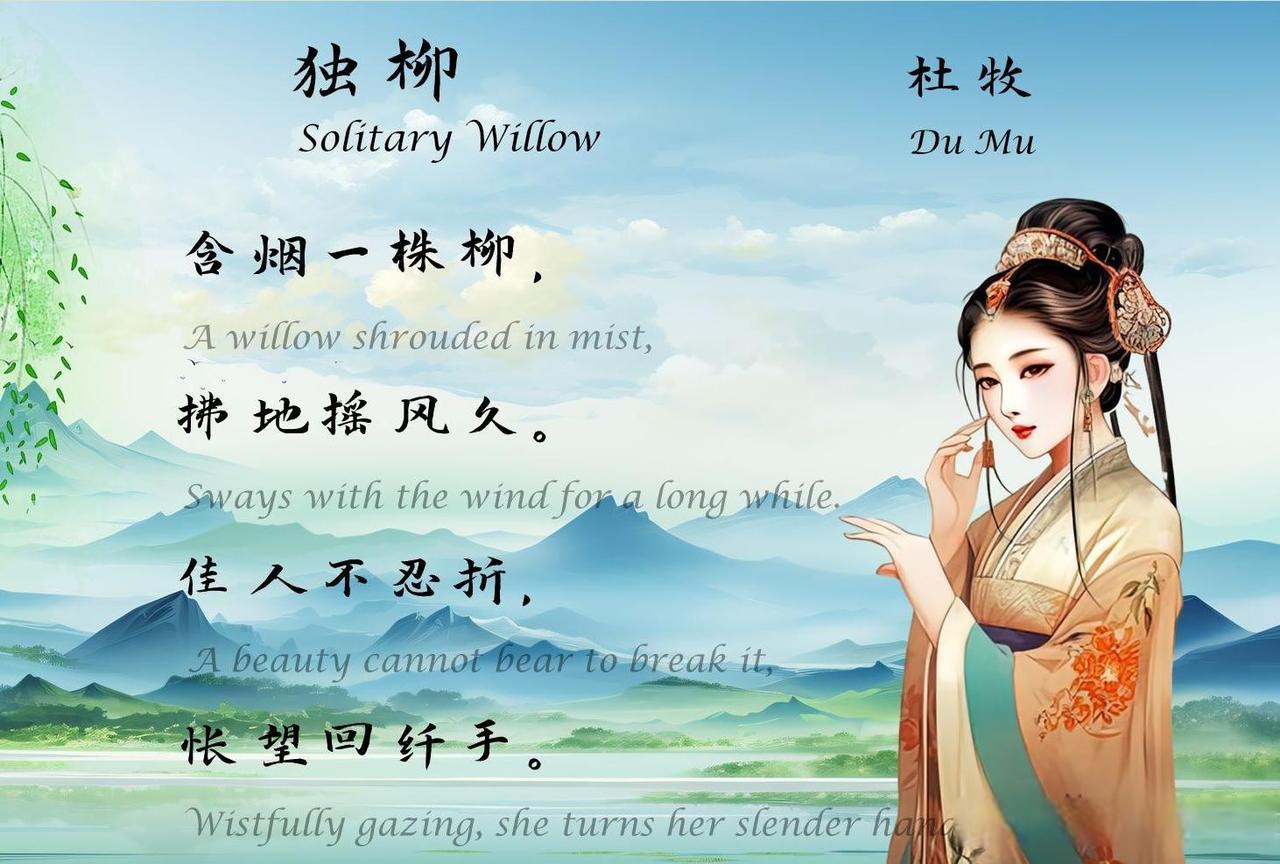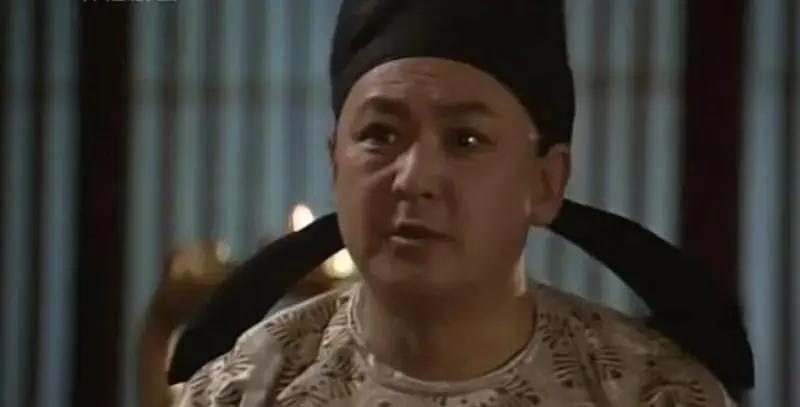As one of the most famous poets of the Tang Dynasty, Du Fu’s fame in later generations can be said to be very great, especially when later generations put him together with Li Bai and called him “Li Du”. I wonder if Du Fu, who has always idolized Li Bai, would be very happy after learning about this? However, during his lifetime, Du Fu did not live as carefree and carefree as Li Bai, and could even be described as poor and destitute. He lived a very uncomfortable life all his life. But why was Du Fu so tragic during his lifetime, and so famous in later generations after his death? Today, let the editor from Wuai Shijing website take you on a look together.
1. Why was Du Fu not very famous during his lifetime
When Du Fu was alive, he should have had some fame, but it did not quite match the reputation and status he gained in later generations. Due to the strong national strength of the prosperous Tang Dynasty, people’s aesthetics tended to be more literary and artistic. Old Du’s melancholic tone is not very pleasing to the eye.
There is no article that startles the sea, and vehicles and horses are stationed in the Yangtze River. “-” A Guest Arrives “. If there were no fame at all, there would be no wealthy and powerful people coming to visit. The name doesn’t matter, the official should take a sick leave for the elderly. “-” Night Travel Book “, if it weren’t for the name of the article, I wouldn’t dare to say it myself.
Du Fu couldn’t find a job because fame can be a stepping stone, but having fame doesn’t necessarily mean having a good job.
After experiencing the era of Empress Wu Zetian and inheriting her father’s official position, the imperial examination system was flourishing. Yang Guozhong’s son walked through the motions and entered the officialdom through the imperial examination. But due to the rule of Li Linfu, there were no outstanding talents left, and Du Fu’s writing was excellent but he had no hope of winning the imperial examination. Our ancestors held certain official positions, but they could not influence the imperial examination system, and even lacked the ability to “warm up the exam papers”. During the ten years when Lao Du was trapped in Chang’an, his way of life was as follows: “Lock the door of the wealthy in the morning, follow the dust of the fat horses at dusk. The remnants of the cup and the cold heat, hide sadness everywhere
Lao Du is not narrow-minded and tends to follow the trend. He was praised by Emperor Xuanzong for presenting the Three Great Rites and Odes, but as a result, his archives were shelved. It may be a sequelae of ‘no one left behind’.
Later, the war broke out and it was no longer a normal society. In an abnormal social environment, it is normal for talented individuals to face difficulties. It’s common to see it in the residence of Prince Qi, and I’ve heard about it a few times in front of Cui Jiutang. It’s the beautiful scenery of Jiangnan, and during the season of falling flowers, I meet you again. “They used to be celebrities, but now they have fallen into a foreign land with no food or clothing. Painter Cao Ba was a novice scholar of Lady Wei, but he hated no more than Wang Youjun. He was often introduced during the Kaiyuan period and went to the Nanxun Hall to show his gratitude. The meritorious officials of Lingyan were few in color, and the general opened his own brush. In the end, when he was poor, he was looked down upon by the common people, and there was no one in the world who was as poor as the common people. But looking back at the reputation of ancient times, he was plagued by hardships all day long. Similarly, when Du Fu presented the Three Great Rites and Odes, he was also brilliant, but after the war, he could only rely on the help of family and friends to survive.
Fortune is unpredictable and life is full of twists and turns. Having abilities does not necessarily mean having a platform to showcase them, especially in ancient times when the number of job opportunities for scholars was narrow, and they could only “learn civil and martial arts and sell goods to the imperial family”.
2. Why did he become as famous as Li Bai after death
Firstly, it should be noted that Du Fu’s lack of fame during his lifetime was not due to his poor creativity, but rather to the social and family environment at that time.
Du Fu’s grandfather, Du Shenyan, had served as some small officials. Although his official position was not high, he was able to associate with Zhang Yizhi and his family background was probably not bad. However, after the Shenlong coup, Zhang Yizhi was executed, Du Shenyan was implicated, and he was also exiled. From then on, the family’s fortunes declined, and during the reign of Du Fu’s father, Du Xian, there was no improvement. So, Du Fu’s family environment from a young age determined that he did not have a high starting point, which also led to his lack of opportunities to interact with contemporary celebrities during his lifetime, and naturally lacked the chance to become famous throughout the world.
According to historical records, in 760 AD, Tang Dynasty people began to collect the works of poets at that time and compile collections. From 760 AD to the fall of the Tang Dynasty in 907 AD, over a period of more than 150 years, ten famous poetry collections were published, including hundreds of poets. However, Du Fu’s name only appeared in the “Youxuan Collection” before the fall of the Tang Dynasty.
So, since Du Fu did not rise to fame during the Tang Dynasty, why did Wei Xuan include his works in the “Youxuan Collection”? To answer this question, we have to mention another famous literary figure in the Tang Dynasty, Yuan Zhen.
In 770 AD, the disillusioned Du Fu passed away in loneliness. Nearly ten years later, in 779 AD, Yuan Zhen was born. It was not until 813 AD that Du Fu’s grandson Du Siye had the opportunity to meet Yuan Zhen and handed over his works before his death, which greatly moved him. Afterwards, with the recommendation of Yuan Zhen, Du Fu’s poetry began to spread widely, and countless people read Du Fu’s poetry with deep emotions. In this way, Du Fu and his poetry were able to see the sky and pass down through the ages.
3. How did Du Fu die
In the third year of Dali (768 AD), Du Fu was homesick and took a boat out of the gorge. He first arrived at Jiangling and then transferred to Gong’an. At the end of the winter, he drifted to Yueyang, Hunan and anchored under the Yueyang Tower. Climbing up to the long-awaited Yueyang Tower, gazing into the distance from the pavilion, facing the vast and majestic Dongting Lake, I was filled with emotions as I thought about my later years of wandering aimlessly and the many disasters and hardships of my country. Thus, I wrote ‘Climbing Yueyang Tower’. Due to difficult living conditions, not only was it unable to return north, but it was also forced to travel further south. In the first month of the fourth year of Dali, he traveled from Yueyang to Tanzhou (Changsha), then from Tanzhou to Hengzhou (Hengyang), and finally returned to Tanzhou.
In the fifth year of Dali (770 AD), Zang Jie rebelled in Tanzhou, and Du Fu fled to Hengzhou. He had planned to seek refuge with his uncle Cui Jian in Chenzhou again, but when he arrived in Leiyang, he encountered a surge in the river and had to anchor at Fangtian Post. He didn’t eat anything for five days, but luckily the county magistrate Nie sent someone to deliver wine and meat and was saved. Later, Du Fu traveled more than 200 miles upstream from Leiyang to Chenzhou, but the flood had not receded yet. Du Fu originally intended to return north, so he changed his plan and went downstream, turning back to Tanzhou. In the winter of the fifth year of Dali (770 AD), Du Fu passed away on a small boat from Tanzhou to Yueyang. At the age of fifty-nine.



